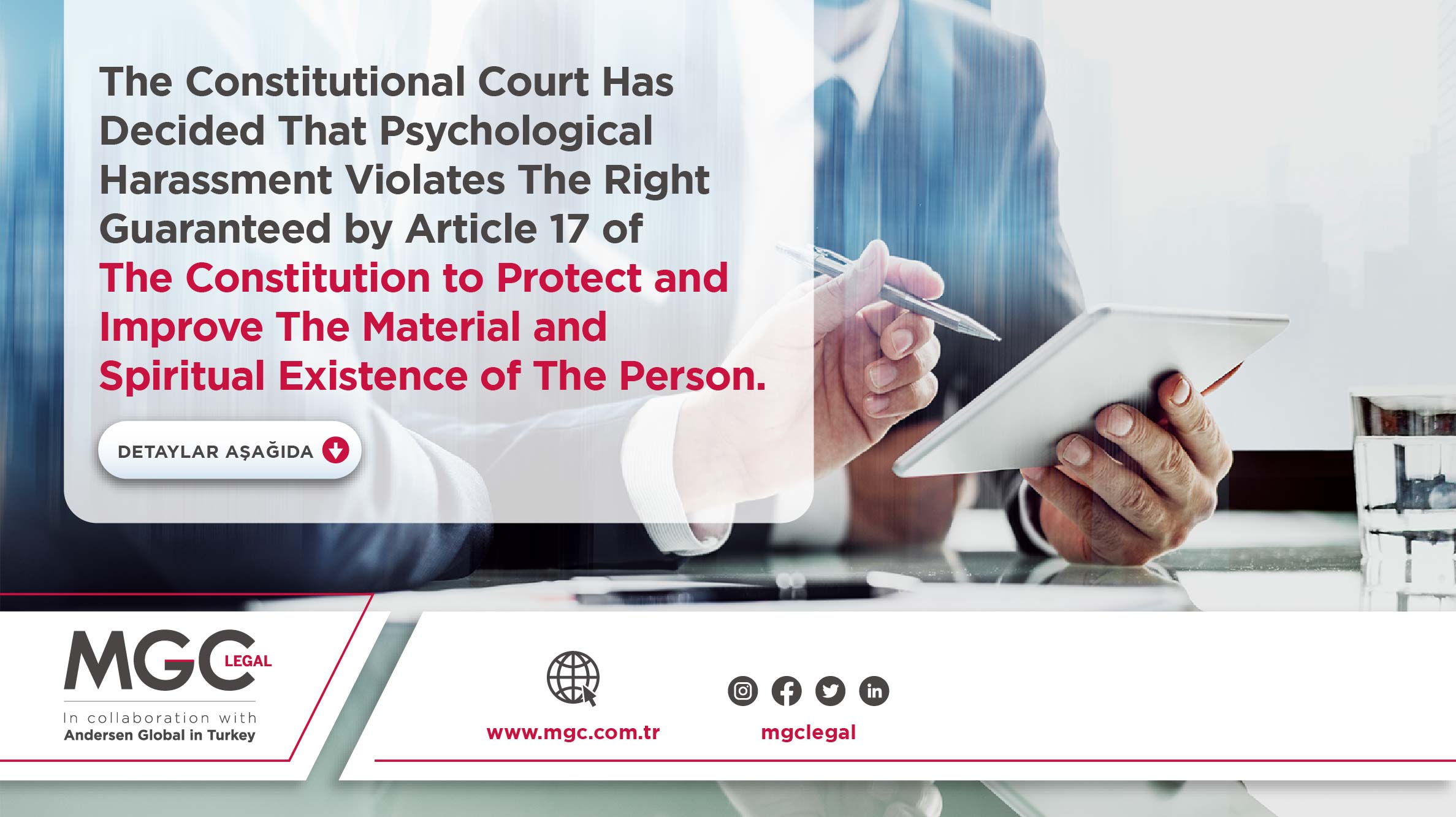Your Partner
in Legal Success
| Reading Time: 2 Minutes
Türkiye’s Constitutional Court Decides That Psychological Harassment Violates Person’s Right to Protect and Improve One’s Material and Spiritual Existence

The Constitutional Court of Türkiye Has Decided That Psychological Harassment Violates The Right Guaranteed by Article 17 of The Constitution to Protect and Improve the Material and Spiritual Existence of The Person.
Based on the events he alleges, the applicant states that nine different disciplinary penalties were imposed on him, which were canceled through the judiciary. He claimed that he was constantly and systematically subjected to psychological harassment and that the full remedy action he brought in this regard was rejected. He claimed that his right to respect private life was violated and applied to the Constitutional Court.
Between 2011 and 2013, nine different disciplinary penalties were instituted against the applicant. Three of these disciplinary penalties were abolished by the Higher Education Council upon objection, and annulment decisions were made about the others because they were unlawful; in the ongoing process, the doctoral thesis of the applicant was canceled due to plagiarism, and the title of doctor was taken back, and the Court canceled the action regarding this.
However, the applicant was acquitted in the trial carried out for insulting the rector of the University where the applicant worked. In addition, it was decided to cancel the procedure regarding the termination of the applicant’s duty by not being reappointed due to the expiration of his term of office. In this process, the applicant; health reports were prepared with the diagnosis of “depressive mood, depressive seizure, anhedonia, and insomnia”.
The Constitutional Court examined the concrete case in accordance with Article 17 of the Constitution. According to this, in the first paragraph of Article 17 of the Constitution, which corresponds to the right to the protection of physical and mental integrity, which is guaranteed within the scope of the right to respect for private life, regulated in Article 8 of the European Convention on Human Rights, it is stated that everyone has the right to protect and develop their material and spiritual existence.
The Constitutional Court has ruled that for an incident to be considered psychological harassment, it must be perpetrated by the managers and/or other employees in the workplace, or these interventions must be tolerated, repeated continuously, contain arbitrariness, be systematic and intentional, have the purpose of intimidation and exclusion, stated that it should involve a danger of harm or serious harm to his professional condition or health.
In addition, the Constitutional Court evaluates the treatments within the scope of psychological harassment. The extent of the consequences may vary according to many factors, such as the frequency of the duration of the treatments, the person or persons who took place, and the gender, age, and health status of the victim, emphasizing that cases should be evaluated together.
At the end of the examination, it was concluded that the positive obligations that the public authorities should undertake within the scope of the right to protect and develop the material and spiritual existence of the person were not fulfilled due to the fact that the public authorities to whom the applicant applied during the process did not take effective measures and the results reached by the instance courts in the full remedy case were not explained with relevant and sufficient reasons. It has been decided that the person’s right to protect and develop their material and spiritual existence, guaranteed per Article 17 of the Constitution, has been violated.



